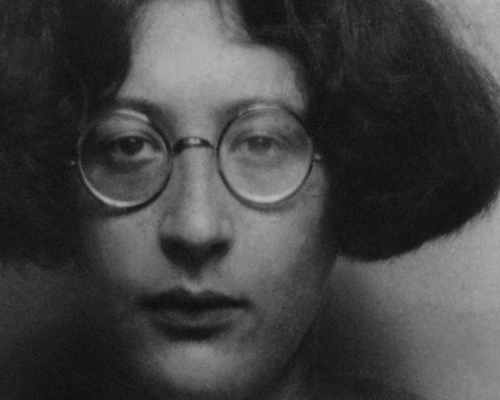
Your complimentary articles
You’ve read one of your four complimentary articles for this month.
You can read four articles free per month. To have complete access to the thousands of philosophy articles on this site, please
Philosophical Haiku
Simone Weil (1909-1943)
by Terence Green
Strip away the Self
Discover the Eternal
Truth, Beauty, the Good

Simone Weil was born in Paris into a secular Jewish family. She died in Kent a Christian Platonist. She was, for André Gide, the ‘patron saint of outsiders’; for Leon Trotsky, the ‘melancholy revolutionary’; and for Albert Camus, the ‘ only great spirit of our time’. She was a Marxist manqué and a mystic de malheur (affliction). After beating Simone de Beauvoir to first place in their university examination, Weil became a teacher, a lecturer, a factory worker, and, briefly, a revolutionary. Deeply troubled by the world’s troubles, she sought solace and answers in both practical and theologico-philosophical ways – in fact, for Weil, the distinction did not exist: “Philosophy,” she wrote, “is exclusively an affair of action and practice.”
Seeking an immovable foundation for a morality of compassion, she found it in the mutual acknowledgement each of us, by an instinct of understanding and recognition, gives every person we encounter. This, she believed, reflected the universal, eternal and immutable image of God we all carry in us – that part of us that is not particular to any but is shared by all. This is why renunciation of the Self – the particular – is necessary to attain to an ethics that acknowledges the equal worth of every individual. Yet too often we find ourselves in Plato’s (allegorical) cave, mistaking shadows for reality, knowing neither the Good for ourselves nor the Good for others, enslaved in a society founded on a love of money and of the illusory modern state. Here there is no bread for the human soul, so it withers and dies. Since she feared Plato’s ‘Great Beast’ – the unthinking, irrational mob – Weil opposed all ideologies and the fatal human tendency to reify abstractions such as the Nation, the State, the People. But she also understood the need to belong. True to her word, she lived out her philosophy of renunciation: she renounced her Jewish heritage, relationships (they hinder the quest for knowledge), and the Self (renunciation of which is the only way to God, others, and the eternal verities). She renounced the world she found herself living in, and, perhaps, she renounced life itself. In 1943, in sympathy with the suffering of occupied France, she barely ate, all the while feverishly writing in her journal, until she fell ill and died. Her final act of renunciation was the complete erasure of herself, as if she had never been: her grave was unmarked.
© Terence Green 2022
Terence Green is a writer, historian, and lecturer who lives in Eastbourne, New Zealand.









